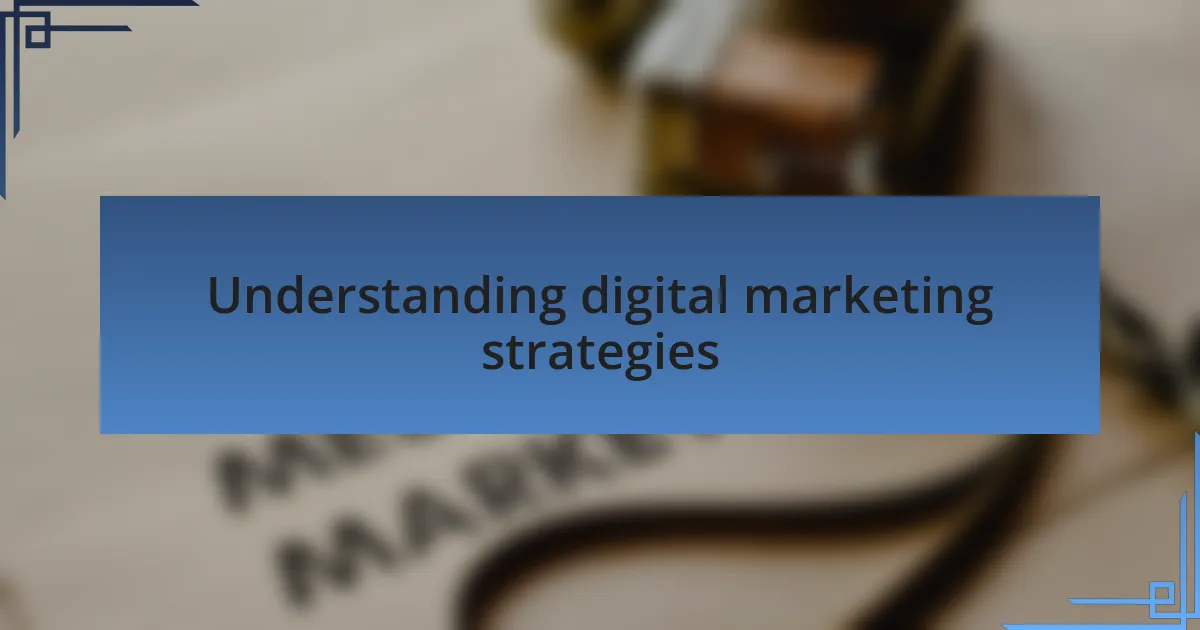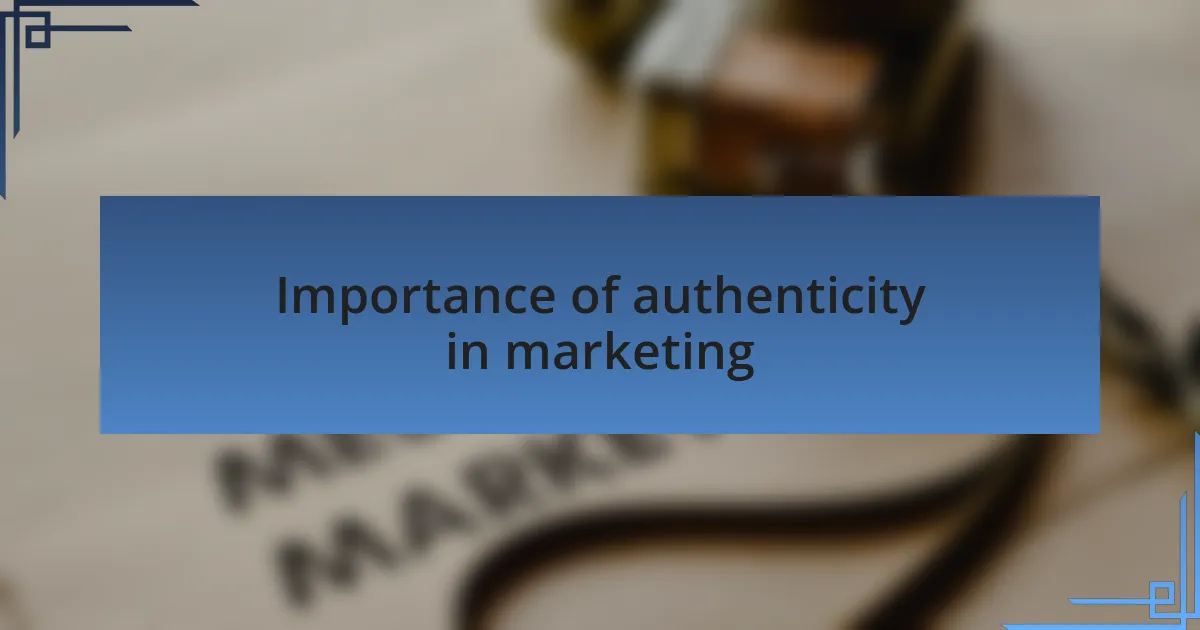Key takeaways:
- Digital marketing strategies vary in purpose and effectiveness; consistent testing and adaptation are essential for success.
- Authenticity in marketing fosters customer loyalty and trust, connecting brands with their audience on a deeper level.
- Successful brands like Apple, Patagonia, and Dove leverage authenticity to resonate with consumers, creating meaningful narratives and communities.

Understanding digital marketing strategies
Digital marketing strategies encompass a range of techniques designed to promote products or services online. I remember, early in my career, feeling overwhelmed by the myriad of options available, from SEO to social media marketing. It made me wonder, with so many choices, how does one determine which strategy aligns best with their goals?
Each strategy serves a unique purpose and appeals to different audiences. For instance, I found that email marketing was particularly effective for nurturing leads who had already shown interest in my services. Have you ever experienced the feeling of hitting “send” on a carefully crafted email campaign and eagerly awaiting the response? It’s that thrill of connection that reveals how powerful the right strategy can be.
Understanding the nuances of each method is crucial. I believe that an effective digital marketing strategy requires constant testing and learning. How often do we reassess our approaches or adapt to the latest trends? It’s essential to stay curious and open, asking ourselves what resonates with our audience at every step of the journey.

Importance of authenticity in marketing
Authenticity in marketing has become increasingly important in today’s digital landscape. I’ve seen firsthand how consumers are drawn to brands that are genuine and transparent. When I switched to a more authentic messaging strategy, I noticed a significant uptick in engagement; it felt rewarding to connect with customers on a deeper level, rather than just pushing a product.
I once ran a campaign that emphasized the story behind my agency, sharing the challenges we faced and the values that drive us. That vulnerability prompted responses from clients who appreciated our honesty. Have you ever felt that rush of positivity when someone reaches out to appreciate your story? It’s that connection that makes authenticity a vital component of any marketing strategy.
In my experience, brands that prioritize authenticity tend to foster loyalty and trust among their audience. When people feel they relate to a brand, they’re more likely to choose it over competitors. Isn’t it fascinating how a simple truth can form a lasting relationship? I find that when brands are truthful and relatable, they not only stand out but create a community that supports and champions their vision.

Case studies of successful brands
Brands like Apple showcase the power of authenticity by embedding their core values into every marketing message. I remember how inspired I felt when I attended an Apple product launch; the way they spoke about innovation wasn’t just about tech—it was a narrative of their mission. Their commitment to creativity and user experience communicates a level of sincerity that resonates deeply with consumers. Have you ever purchased a product simply because you felt a connection to the brand’s story?
Consider the case of Patagonia, which has turned its values into a marketing strategy that goes beyond selling outdoor gear. Their “Don’t Buy This Jacket” campaign, which encouraged consumers to rethink their purchasing habits, impressively aligned with their environmental mission. When I learned about their transparent approach to sustainability, it made me reflect on my own consumption choices. It gets me thinking—how often do we see brands willing to risk sales for a cause that aligns with their authenticity?
Another example is Dove, which has consistently promoted body positivity and self-acceptance in its campaigns. This approach is not just a marketing tactic but a genuine reflection of their values, often striking an emotional chord with me. I still recall the first time I saw their “Real Beauty” campaign; it celebrated diversity in a way that made me feel included and valued. This kind of authenticity creates a sense of belonging. Isn’t it powerful when a brand can shift perceptions and foster community simply through honest representation?